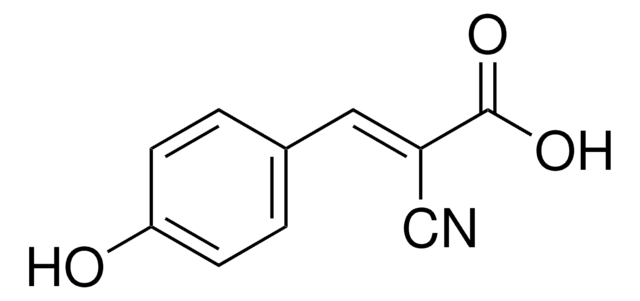P5607
L-Proline
98.5-101.0% dry basis, suitable for cell culture, non-animal source, meets EP, USP testing specifications
Synonym(s):
(S)-Pyrrolidine-2-carboxylic acid
About This Item
Recommended Products
product name
L-Proline, from non-animal source, meets EP, USP testing specifications, suitable for cell culture
biological source
non-animal source
Quality Level
Agency
meets EP testing specifications
meets USP testing specifications
Assay
98.5-101.0% dry basis
form
powder
optical activity
[α]20/D -86.0 to -84.0 °, c = 4 in water
[α]25/D -86.3 to -84.3°, c = 4 in water
technique(s)
cell culture | mammalian: suitable
impurities
endotoxin, tested
color
white
mp
228 °C (dec.) (lit.)
solubility
H2O: 50 mg/mL
cation traces
Fe: ≤10 ppm
NH4+: ≤0.02%
application(s)
pharmaceutical (small molecule)
functional group
(Imine)
carboxylic acid
storage temp.
room temp
SMILES string
OC(=O)[C@@H]1CCCN1
InChI
1S/C5H9NO2/c7-5(8)4-2-1-3-6-4/h4,6H,1-3H2,(H,7,8)/t4-/m0/s1
InChI key
ONIBWKKTOPOVIA-BYPYZUCNSA-N
Looking for similar products? Visit Product Comparison Guide
General description
This amino acid, synthesized within the human body from other amino acids, is involved in a range of functions. It contributes to wound healing, supports the synthesis of essential molecules such as elastin and carnitine, and is a key player in protein synthesis and structural stability. L-Proline is also associated with metabolic processes, including the synthesis of arginine, polyamines, and glutamate. In the realm of nutrition, it is known for its antioxidative properties and its role in immune responses.
Additionally, It also influences carbohydrate metabolism, cell growth, proliferation, and the maintenance of normal bodily functions. In cellular studies, it has demonstrated its ability to stimulate the growth of specific cell types while inhibiting the growth of others, making it a multifaceted component of various biological systems.
Moreover, L-Proline operates as a signaling molecule, participating in redox reactions and serving as a sensor of cellular energy status. It is involved in differentiation processes, impacting embryonic stem cells and the growth and development of the conceptus (fetus and associated extraembryonic membranes) in humans and animals. L-Proline is a critical amino acid that plays a diverse and significant role in various biochemical and cellular processes, making it a valuable subject of study in fields such as biochemistry, microbiology, metabolism, cell biology, and nutrition research.
Application
Biochem/physiol Actions
Features and Benefits
- Can be used in Metabolomics and Biochemical research
- High-quality compound suitable for multiple research applications
Other Notes
Application
comparable product
Storage Class Code
11 - Combustible Solids
WGK
WGK 1
Flash Point(F)
Not applicable
Flash Point(C)
Not applicable
Personal Protective Equipment
Regulatory Listings
Regulatory Listings are mainly provided for chemical products. Only limited information can be provided here for non-chemical products. No entry means none of the components are listed. It is the user’s obligation to ensure the safe and legal use of the product.
JAN Code
2516179:
2540116:
P5607-25G:
P5607-100G:
P5607-25KG:
P5607-BULK:
P5607-1KG:
P5607-VAR:
Certificates of Analysis (COA)
Search for Certificates of Analysis (COA) by entering the products Lot/Batch Number. Lot and Batch Numbers can be found on a product’s label following the words ‘Lot’ or ‘Batch’.
Already Own This Product?
Find documentation for the products that you have recently purchased in the Document Library.
Customers Also Viewed
Our team of scientists has experience in all areas of research including Life Science, Material Science, Chemical Synthesis, Chromatography, Analytical and many others.
Contact Technical Service







